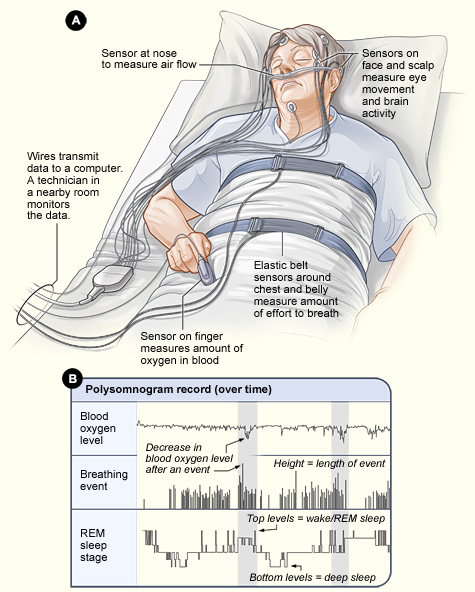REM Sleep: How Much Do You Need & Average Deep Sleep Per Night Explained
You’ve been sleeping for years, but are you doing it right? Most people don’t realize that getting eight hours of sleep doesn’t automatically mean you’re well-rested. The secret lies in understanding REM sleep and deep sleep—two critical stages that determine whether you wake up refreshed or exhausted.
Here’s the thing: you could sleep for nine hours and still feel tired because you’re not getting the right balance of sleep stages. So how much REM sleep do you actually need? And what about deep sleep? Let’s break it down in a way that makes sense.
Understanding Your Sleep Cycles
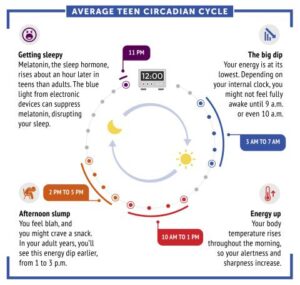
Sleep isn’t just one continuous state. Your brain and body cycle through four distinct stages multiple times each night. Think of it like a playlist on repeat—each song (or stage) plays for a different length, and they all serve different purposes.
A complete sleep cycle lasts about 90 to 120 minutes. Most people go through four to six cycles per night if they get a full eight hours of sleep. But here’s what makes this fascinating: the composition of these cycles changes throughout the night.
The Four Stages of Sleep
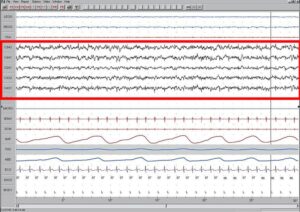
Stage 1 is your lightest sleep—it’s that brief period when you’re just drifting off. You spend only about 5% of your night here, usually just a few minutes at a time. You can wake up easily during this stage, and you might even feel like you haven’t slept at all if someone wakes you.
Stage 2 accounts for about 45% of your sleep time. Your heart rate slows, your body temperature drops, and your brain starts organizing memories. This stage prepares you for the deeper, more restorative sleep ahead.
Stage 3 is your deep sleep stage. This is when your body performs most of its physical repair work. Your brain waves slow dramatically, and it becomes very difficult to wake up. We’ll dive deeper into this stage in a moment.
Finally, REM (Rapid Eye Movement) sleep is where most of your dreaming happens. Your brain becomes almost as active as when you’re awake, but your muscles are temporarily paralyzed to prevent you from acting out your dreams.
How Much REM Sleep Do You Need?
Now let’s get specific about REM sleep. Adults need approximately 90 to 120 minutes of REM sleep per night, which equals 20-25% of total sleep time. If you’re getting seven to eight hours of sleep, around two hours should be REM.
But here’s what makes REM sleep tricky: you don’t get it all at once. Your first REM period of the night lasts only 10 minutes and occurs about 90 minutes after you fall asleep. Then, with each subsequent sleep cycle, your REM periods get longer. By morning, you might spend up to an hour in a single REM stage.
Why REM Sleep Matters So Much
REM sleep isn’t just about dreaming. It’s when your brain consolidates memories and processes emotional experiences from the day. Students who get adequate REM sleep perform better on tests. Athletes retain skills learned during practice. Creative professionals solve problems more effectively.
During REM sleep, your brain activity resembles wakefulness. Your eyes move rapidly behind closed lids, your heart rate increases, and your breathing becomes irregular. Meanwhile, most of your muscles are temporarily paralyzed—a protective mechanism that prevents you from physically acting out your dreams.
Research shows that if you don’t get enough REM sleep one night, your body will naturally try to make up for it the next night. This phenomenon is called “REM rebound.” You’ll enter REM stages earlier and stay in them longer as your brain tries to catch up on what it missed.
How REM Sleep Changes with Age
Newborns spend about 50% of their sleep time in REM—that’s eight hours per day. This makes sense because REM sleep plays a crucial role in brain development. By six months, that percentage starts declining.
Teenagers still need substantial REM sleep for continued brain development and learning. Adults settle into the 20-25% range. Then, as you age past 65, you tend to get slightly less REM sleep, though the decline isn’t as dramatic as many people think.
| Age Group | REM Sleep Percentage | Typical REM Duration |
|---|---|---|
| Newborns (0-3 months) | 50% | 8 hours |
| Infants (4-11 months) | 40% | 4-5 hours |
| Children (1-12 years) | 30% | 2.5-3 hours |
| Teens (13-17 years) | 25% | 2-2.5 hours |
| Adults (18-64 years) | 20-25% | 90-120 minutes |
| Older Adults (65+ years) | 15-20% | 60-90 minutes |
Average Deep Sleep Per Night
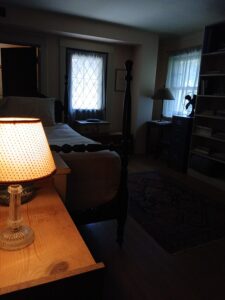
Deep sleep, also called slow-wave sleep or Stage 3 sleep, is your body’s maintenance period. Most adults need 1.5 to 2 hours of deep sleep per night, which represents about 15-25% of total sleep time.
If you’re sleeping eight hours, you should aim for 60 to 110 minutes of deep sleep. However, this number decreases with age. Older adults might get as little as 30 minutes of deep sleep, though they still need at least an hour for optimal health.
What Happens During Deep Sleep
During deep sleep, your body goes into full recovery mode. Your breathing slows to its lowest rate of the night. Your heart rate drops significantly. Blood pressure decreases. Your muscles relax completely, though they’re still capable of movement (unlike during REM sleep).
This is when your body releases growth hormone, which stimulates tissue repair and muscle growth. Your immune system strengthens. Damaged cells get repaired. Bone and muscle rebuild. Energy stores refill for the next day.
Deep Sleep Functions
Physical restoration: Tissue repair, muscle growth, bone strengthening
Immune support: White blood cell production increases
Hormone regulation: Growth hormone release, cortisol balance
Energy restoration: Glycogen stores replenish
REM Sleep Functions
Memory consolidation: Short-term to long-term memory conversion
Emotional processing: Mood regulation, stress management
Skill retention: Motor skills and learning solidification
Creativity boost: Problem-solving and creative thinking
Deep Sleep Distribution Throughout the Night
Here’s something important: you get most of your deep sleep in the first half of the night. The first sleep cycle might include 30-40 minutes of deep sleep. But by your third or fourth cycle, you might only get 10 minutes or none at all.
This is why going to bed late but waking up at your normal time can be so problematic. You’re essentially cutting out the portion of the night when deep sleep is most abundant. You might still get your REM sleep (which concentrates in the second half of the night), but you’ll miss crucial deep sleep.

Key Timing Insight: Research shows sleeping between 8 PM and midnight gives you the best chance at restorative deep sleep, regardless of your wake time. The earlier you go to bed before midnight, the more deep sleep you’ll accumulate.
Signs You’re Not Getting Enough REM or Deep Sleep
How do you know if you’re getting enough of these critical sleep stages? Your body sends clear signals when something’s off. Let’s break them down by sleep stage.
Symptoms of REM Sleep Deprivation
When you don’t get enough REM sleep, your brain suffers. You might notice difficulty concentrating or learning new information. Memory problems become more frequent—you forget where you put your keys or struggle to recall conversations.
Mood changes are another major sign. REM sleep helps regulate emotions, so missing it can make you irritable, anxious, or depressed. You might overreact to minor frustrations or feel emotionally unstable without understanding why.
Also, if you’re trying to learn a new skill—whether it’s playing an instrument, speaking a language, or improving your golf swing—inadequate REM sleep will slow your progress significantly. REM sleep is when your brain solidifies new skills into long-term memory.
Symptoms of Deep Sleep Deprivation
Missing deep sleep hits your body hard. The most obvious sign is waking up feeling exhausted even after sleeping eight hours. You drag through the day with persistent fatigue that coffee can’t fix.
Your immune system weakens without adequate deep sleep. You might catch colds more frequently or take longer to recover from illness. Chronic pain conditions often worsen. Athletes notice slower muscle recovery and decreased performance.
Brain fog is another telltale symptom. You feel mentally sluggish, have trouble focusing, and experience decreased mental clarity. Simple tasks require more effort than they should.
Factors That Affect Your Sleep Stages
Several factors determine how much REM and deep sleep you actually get. Understanding these helps you make better choices for sleep quality.
Age and Sleep Architecture
We’ve touched on this, but it bears repeating: age dramatically affects your sleep architecture (the pattern of sleep stages throughout the night). Young adults can easily hit 25% deep sleep, while someone over 70 might struggle to reach 10%.
Deep sleep declines at a rate of about 1.7% per decade. Interestingly, men experience steeper declines than women. Men aged 70 and older average only 5% of their sleep in deep stages, while women in the same age bracket maintain 15-20%.
Alcohol’s Surprising Impact
Many people think a nightcap helps them sleep better. The truth is more complicated. Alcohol decreases REM sleep in the first half of the night, then causes a “REM rebound” as it wears off, leading to fragmented sleep and vivid dreams in the morning hours.
Alcohol also prevents your body from entering deep sleep while it’s busy metabolizing the alcohol. You’ll spend more time in light sleep and less in the restorative stages you actually need.
Sleep Disorders
Sleep apnea is a major disruptor of both deep and REM sleep. When your breathing stops or becomes shallow during sleep, your brain jolts you into a lighter sleep stage to restart breathing. This can happen dozens or even hundreds of times per night, completely fragmenting your sleep architecture.
Other conditions like restless leg syndrome, periodic limb movement disorder, and REM sleep behavior disorder can all interfere with getting adequate amounts of restorative sleep.
How Sleep Cycles Progress Through the Night
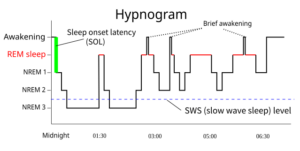
Cycle 1 (90 min): Short REM (10 min), substantial deep sleep (30-40 min)
How to Get More REM and Deep Sleep
Now for the practical part: how do you actually improve your REM and deep sleep? The good news is that many strategies work for both stages, though some are more specific to one or the other.
Timing Is Everything
The single most important factor for deep sleep is when you go to bed. Because deep sleep concentrates in the early part of the night, going to bed earlier—ideally between 9 PM and 11 PM—gives you more opportunities for deep sleep cycles.
For REM sleep, the opposite applies. Since REM dominates the second half of the night, you need to protect your morning sleep. Don’t cut your sleep short by waking up too early. If you need to wake at 6 AM, you should be in bed by 10 PM at the latest.
Sleep Consistency Wins
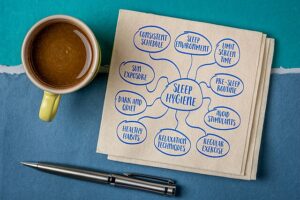
Your body thrives on routine. Going to bed and waking up at the same time every day—yes, even on weekends—significantly improves both REM and deep sleep quality.
Research analyzing 25,000 sleep patterns found that as sleep consistency increased over a four-day period, the amount of nightly REM sleep rose substantially. Your brain and body work more efficiently when they can predict your sleep schedule.
Evidence-Based Strategies for Better Sleep Stages
The Power of Pink Noise
Here’s an interesting strategy: pink noise. Unlike white noise, which contains all frequencies equally, pink noise emphasizes lower frequencies and sounds more natural—think rainfall or rustling leaves.
Recent research published in the European Heart Journal found that pink noise significantly increased slow-wave (deep sleep) activity. Even better, this increase correlated with improved heart function, specifically better performance of the left ventricle.
Technology and Sleep Tracking
Sleep trackers have become incredibly popular, and about half of people who use them check their REM sleep data regularly. But how accurate are these devices?
Most consumer sleep trackers can’t perfectly measure sleep stages. They use movement and heart rate data to estimate which stage you’re in, but this isn’t as accurate as a polysomnogram (the gold standard sleep study that measures brain waves).
That said, sleep trackers still have value. They can identify trends over time and help you see how lifestyle changes affect your sleep. If your tracker consistently shows low REM sleep, that’s a signal to evaluate your sleep routine or talk to your doctor—even if the exact numbers aren’t perfectly accurate.
When to See a Sleep Specialist
Sometimes, despite your best efforts, sleep problems persist. Here are signs you should consult a sleep specialist rather than trying to fix things yourself.
If you sleep 7-9 hours consistently but wake up exhausted, that’s a red flag. It suggests your sleep architecture is disrupted, possibly by an underlying sleep disorder. The same goes if you snore loudly, gasp for air during sleep, or experience frequent nighttime awakenings.
Daytime symptoms matter too. Extreme daytime sleepiness, falling asleep at inappropriate times, or needing multiple naps to function all warrant professional evaluation. These could indicate conditions like sleep apnea, narcolepsy, or other serious sleep disorders.
A sleep study involves spending a night in a sleep clinic where specialists monitor your brain waves, eye movements, heart rate, breathing, and muscle activity. This comprehensive data reveals exactly what’s happening during your sleep and can diagnose issues that home strategies can’t fix.
Special Considerations
Certain groups have unique sleep needs and challenges. Let’s address a few specific situations.
Athletes and Physical Training
Athletes who train intensively spend more of their night in deep sleep. Their bodies need the extra time for muscle recovery and tissue repair. If you’re training hard but not getting adequate deep sleep, you’ll see decreased performance and slower progress.
Interestingly, REM sleep is where motor skills get consolidated. That golf swing you practiced or the dance routine you learned gets “saved” to long-term memory during REM sleep.
Women and Sleep
Some research suggests women spend proportionally more time in deep sleep than men and experience more intense deep sleep after sleep deprivation. However, the difference is small—women sleep an average of only 11-14 minutes longer than men.
Hormonal changes during menstrual cycles, pregnancy, and menopause can all affect sleep architecture. Women going through menopause often report decreased sleep quality and may benefit from targeted interventions.
Shift Workers
People working night shifts or rotating schedules face unique challenges. Their circadian rhythms are constantly disrupted, making it hard to get adequate REM and deep sleep even when they do sleep.
If you work shifts, focus on creating a dark, quiet sleep environment during the day. Consistency becomes even more important—try to sleep at the same times on your days off to minimize circadian disruption.
The Bottom Line on Sleep Stages
Getting enough total sleep is important, but it’s not the whole story. You need the right balance of sleep stages to wake up feeling truly rested and maintain optimal health.
Aim for 90-120 minutes of REM sleep per night (about 20-25% of total sleep time) and 60-110 minutes of deep sleep (15-25% of total sleep time). These targets ensure your brain gets the memory consolidation and emotional processing it needs, while your body gets the physical repair and immune system support it requires.
The strategies we’ve discussed—consistent sleep timing, avoiding alcohol and caffeine, exercising regularly, and creating an optimal sleep environment—work for most people. But if problems persist despite lifestyle changes, don’t hesitate to seek professional help. Sleep disorders are common and treatable.
Remember, you spend about a third of your life sleeping. That’s not wasted time—it’s when your brain and body perform critical maintenance that keeps you healthy, sharp, and energized. Invest in your sleep quality, and everything else in your life improves.
References
- Sleep Foundation – REM Sleep: What It Is and Why It’s Important
- Harvard Health – REM Sleep Guide
- Cleveland Clinic – Sleep Basics and Stages
- Healthline – How Much Deep Sleep Do You Need?
- StatPearls – Physiology, Sleep Stages
- Stony Brook Medicine – Deep Sleep Requirements
- GoodRx – REM Sleep: What Is It and How Many Hours Do You Need?
- WHOOP – Understanding REM Sleep
- Sleep Foundation – How Much Deep Sleep Do You Need?
- Sleep Foundation – How Much Sleep Do We Really Need?
- Sleep Cycle Centers – REM Sleep Requirements
Related Articles on Remedy Verified
Discover more science-backed sleep and wellness content:
Author Bio
The Remedy Verified Team translates complex metabolic science into clear, practical strategies for everyday health.
Medical Disclaimer
This article is for informational purposes only and does not constitute medical advice. Sleep disorders are complex medical conditions that require professional diagnosis and treatment. If you experience persistent sleep problems, excessive daytime sleepiness, or suspect you have a sleep disorder, consult a qualified healthcare provider or sleep specialist. The information provided here should not replace professional medical advice, diagnosis, or treatment.
